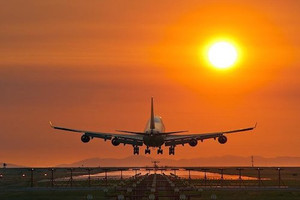
Sometimes I suffer from it and sometimes I don't. It's the bane of every long haul flyer, but what can you do to combat the inevitable and dreaded jet lag? My last spell with jet lag was surprisingly after my return from Bali in March. Okay, so it did involve an overnight flight, but I was in Jetstar's Star Class; the three hour time difference between Denpasar and Sydney, however, had at me at odds for about a week. I was hungry at the wrong time, tired at the wrong time, and waking up too way too early. Jet lag isn't an illness, but a combination of fatigue and other symptoms caused by travelling quickly across different time zones. To touch on science for a moment, the reason why we get out of whack is that the body is fine-tuned to respond to night and day by the action of sunlight through brain chemicals, especially melatonin. Many of our bodily processes and functions are timed on this 24-hour physiological ‘clock’, including our digestion, heart rate, blood pressure, and even the state of our brain. Travelling to a different time zone disrupts this essential clock, also called our circadian rhythm, resulting in jet lag. Add to that a lack of sleep before and during travel, and jet lag can feel much, much worse.
Many people have different symptoms when they suffer from jet lag, but commonly they include fatigue, sleepiness, difficulty making decisions, impaired judgment, irritability and apathy. Some people also report digestive upsets, and even memory lapses. Evidence suggests that flying east or west can make a difference to jet lag. Experts believe your body clock is less confused if you travel westbound, possibly down to a prolonging of the body clock’s experience of its normal day-night cycle. Travelling eastbound, however, runs in direct opposition, making things worse. Like the common cold, jet lag has no cure, but there are plenty of suggestions to help minimise the symptoms, and reduce the longevity of the problem. On the flight itself they include adjusting to the new time zone on takeoff, avoiding alcohol and caffeine, drinking plenty of water, and moving around the plane as much as won't annoy anyone else.
On arrival, things you can do include adjusting to your new time zone quickly by exposing yourself to daylight, or a bright light to help ‘reset’ your body clock, laying off caffeinated drinks during the day, and avoiding alcohol or coffee a from a few hours before heading to bed. Other suggestions people have told me include not using prescription medications to enforce sleep on arrival, avoiding the daytime nap, no matter how tired you're feeling, and some swear by is using a white noise machine, which helps you to block out annoying noises while you try to sleep. Jet lag is very individual; when and how long a person suffers from it, and the symptoms they experience can vary dramatically. The key thing is to try a variety of methods such as those mentioned above and see what works for you. It may not eliminate jet lag entirely, and may not work perfectly every time, but anything you can do to ensure feeling good on arrival, and during the first few days of your trip is essential.
- By:
- Joanna Hall






